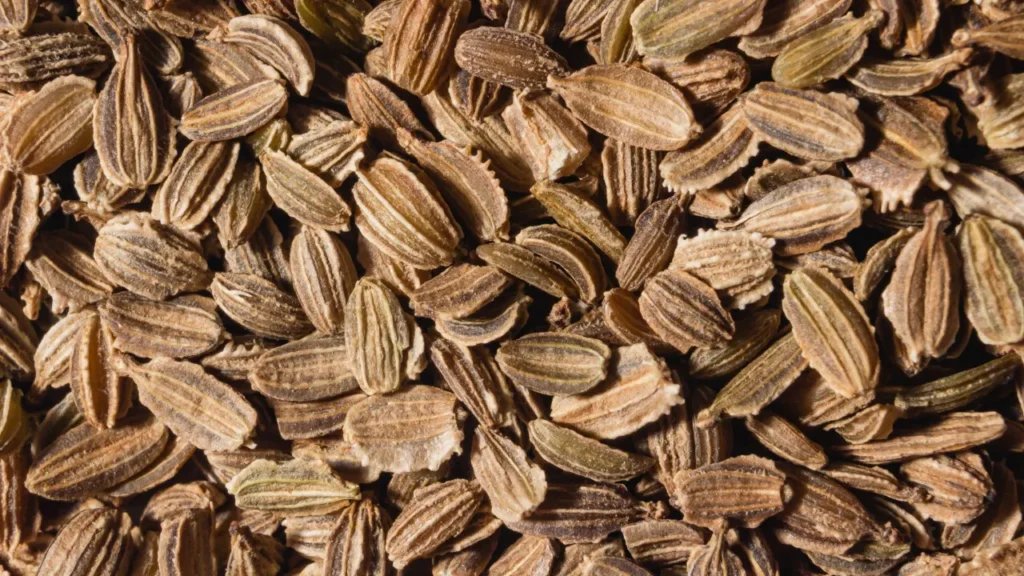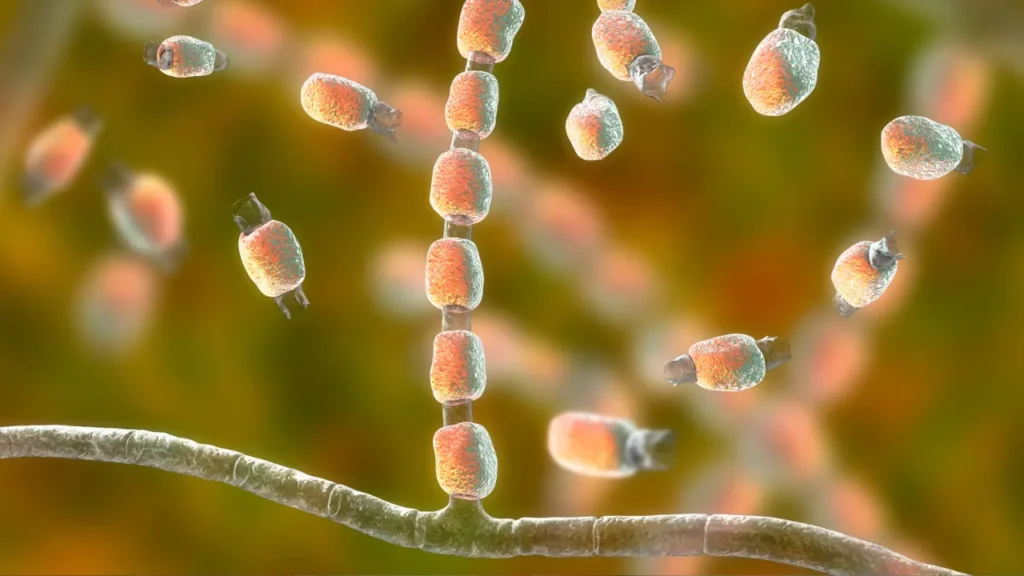Wild Carrot is native to Europe and Southwest Asia. The Wild Carrot (Daucus carota) is often known as Queen Anne’s Lace or Bird’s Nest and is a biennial plant. The plant belongs to the Apiaceae family, a plant family which also contains celery, parsnip, and parsley. Wild Carrot is a typical sight in fields and by the sides of roads. It has a delicate, lacy appearance and umbrella-shaped clusters of white flowers. Although the plant and the commonly cultivated carrot have the same name, their appearances and uses are disparate. This page explores the characteristics of Wild Carrot, as well as its advantages for health, recommended dosage, possible negative effects, possible drug interactions, and responsible use.
You May Also Like:
BANABA: Benefits, Dosage, Side Effects, Drug Interactions, And Other Important Information
BAIKAL SKULLCAP: Benefits, Dosage, Side Effects, Drug Interactions, And Other Important Information
WILD CARROT: Benefits, Dosage, Side Effects, Drug Interactions, And Other Important Information is an original (NootropicsPlanet) article.
Nature of Wild Carrot
Various bioactive substances found in Wild Carrot contribute to its therapeutic and nutritive qualities. Phytochemicals such as flavonoids, phenolic acids, coumarins, and essential oils are prevalent in Wild Carrot. Different amounts and varieties of these substances are present in the seeds, leaves, and roots of Wild Carrot, which are also the portions that are most frequently utilized medicinally.
1. Flavonoids: These substances have potent anti-inflammatory and anti-cancer activities.
2. Essential oils: These oils have healing and impactful qualities.
Health Benefits of Wild Carrot
Due to the abundance of bioactive substances found in Wild Carrot, it has long been used in traditional medicine to cure a variety of diseases, and more recent research is beginning to clarify the mechanisms at work. The following are a few of the main health advantages of Wild Carrot:
1. Antioxidant qualities: Free radicals, which are unstable molecules that can harm cells and speed up aging and diseases like cancer and heart disease, are neutralized by the flavonoids and phenolic acids found in Wild Carrot.
2. Anti-inflammatory properties: Bioactive components in Wild Carrot block the generation of cytokines and other inflammatory mediators, which helps to lessen inflammation.
3. Diuretic effects: Wild Carrot seeds have long been used as a diuretic to enhance urine production and encourage the body’s removal of extra fluids. For those who have edema or high blood pressure, this may be beneficial.
4. Antibacterial and Antifungal activities: Wild Carrot has essential oils are both antibacterial and antifungal, making it a possible remedy for bacterial and fungal infections.
5. Female reproductive health: In traditional medicine, Wild Carrot seeds have been used as an emmenagogue to induce menstruation and as a contraceptive. Although the precise mechanism of action is yet unknown, scientists and nutritionists think that the seeds may prevent the production of prostaglandins, which are hormones important for both conception and the menstrual cycle.

Chemistry of Wild Carrot
The diverse chemical makeup of Wild Carrots contains a variety of bioactive substances that support their therapeutic and dietary benefits. The principal chemical families in Wild Carrots are:
1. Flavonoids: There is a class of polyphenolic chemicals that are antioxidants. Some of those who are a part of this group exist within Wild Carrot. Flavonoids like kaempferol, quercetin, and luteolin are abundant in Wild Carrot.
2. Phenolic acids: Phenolic acids such chlorogenic, ferulic, and caffeic acid are present in Wild Carrot. They are chemicals that have anti-inflammatory and antioxidant properties.
3. Coumarins: Coumarins are naturally occurring substances with the power to enable a variety of biological effects. One such coumarin, umbelliferone, is present in Wild Carrot and has anti-inflammatory, antioxidant, and antibacterial activities.
4. Essential oils: Terpenes like -pinene, sabinene, and limonene make up the majority of the Wild Carrot’s essential oils. These oils have antifungal, antibacterial, and antioxidant qualities.
Physiological Mechanisms of Action of Wild Carrot
The bioactive chemicals found in Wild Carrot exert their effects on the body via a variety of physiological pathways. Among the key mechanisms are:
1. Antioxidant activity: Wild Carrot flavonoids and phenolic acids boost the activity of antioxidant enzymes in the body, bolstering the body’s natural defenses against oxidative stress.
2. Anti-inflammatory properties: Flavonoids, phenolic acids, and coumarins, among other bioactive substances found in Wild Carrot, can decrease the production of pro-inflammatory cytokines and other inflammatory mediators. They work by influencing the activation of critical signaling pathways such as the nuclear factor kappa B (NF-B) and mitogen-activated protein kinase (MAPK) pathways, both of which are important in the regulation of inflammation.
3. Diuretic properties: Wild Carrot seeds include chemicals that stimulate the removal of excess fluids from the body by increasing urine output. This activity is most likely mediated through the control of renal sodium and water transporters, which govern sodium and water reabsorption in the kidneys.
4. Antimicrobial and antifungal properties: Terpenes in Wild Carrot essential oils impair the integrity of bacterial and fungal cell membranes, resulting in cell death. They also block the creation of critical cellular components such as proteins and nucleic acids, limiting pathogen growth and survival.
5. Female reproductive health: The method through which Wild Carrot seeds affect female reproductive health is unknown. The seeds, however, are thought to interfere with the manufacture of prostaglandins, hormones involved in the menstrual cycle and fertilization. This interference has the potential to impact menstruation and fertility by modulating uterine contractions and cervical mucus production.


Optimal Dosage of Wild Carrot
The ideal dosage of Wild Carrot might vary depending on a number of variables, including age, weight, and general health, just like with any dietary supplement or herbal medicine. Before starting any supplementation regimen, it is imperative for you to speak with a healthcare practitioner. The following doses are often regarded as secure and efficient for adult use:
1. Wild Carrot seeds: Consume 1-2 grams of the crushed seeds daily, either in a beverage or as a dietary supplement.
2. Wild Carrot root: You can take 1-2 grams of dried and powdered Wild Carrot root per day. 2-4 grams of dried root can be boiled in water for 10-15 minutes to make a decoction, which can then be taken once or twice a day.
3. Wild Carrot essential oil: Because of its strength, just a few drops of the oil should be diluted in a carrier oil before applying directly or using in aromatherapy.
4. Wild Carrot tincture: A dose of 1-2 mL of Wild Carrot tincture can be taken two to three times per day.
Side Effects of Wild Carrot
While using Wild Carrot in moderation and at the prescribed dosages is usually regarded as safe, several potential adverse effects have been noted. These consist of:
1. Allergic reactions: People who are allergic to other Apiaceae family members, such celery, parsley, or parsnip may be more likely to experience an allergic reaction to Wild Carrot.
2. Digestive problems: Consuming a lot of Wild Carrot seeds or roots may result in digestive problems like nausea, vomiting, or diarrhea.
3. Skin irritation: When applied topically, particularly when improperly diluted, Wild Carrot essential oil may cause skin irritation or contact dermatitis in certain people.
4. Photosensitivity: Furanocoumarins, which are present in Wild Carrot, might increase one’s sensitivity to sunlight and raise the danger of sunburn and skin damage. Although topical application is mostly linked to this danger, it is still important to use caution and shield your skin from too much sun exposure.


Potential Substance Interactions
There is a chance that it will interact with other drugs or supplements that you take, just like any other dietary supplement. When utilizing Wild Carrot, you should be aware of the following possible interactions:
1. Anticoagulants: Coumarins found in Wild Carrots have the potential to interact with anticoagulants like warfarin, raising the risk of bleeding. If you take any anticoagulant medicine, talk to your doctor before using Wild Carrot.
2. Diuretics: Due to the diuretic effects of Wild Carrot, taking it alongside other diuretic drugs or supplements may result in excessive fluid loss and electrolyte abnormalities.
3. Hormonal contraceptives: Because of the Wild Carrot seeds’ contraceptive effects, hormonal contraceptives may not work as well as they could. If you are on hormonal contraceptives, talk to your doctor before utilizing Wild Carrot seeds.
Best Responsible Uses of Wild Carrot
Consider these suggestions for using Wild Carrot safely and successfully:
1. Before beginning any Wild Carrot supplementation, speak with a medical expert, especially if you have any health issues, are pregnant, nursing, or taking any drugs.
2. Begin with a low dosage and increase it gradually as required, closely monitoring any potential side effects.
3. Ensure that the Wild Carrot product you’re utilizing is premium-grade, pure, from a reliable source, and unadulterated.
4. When utilizing Wild Carrot, especially if using the essential oil topically, stay out of the sun as much as possible.
Wild Carrot:
Conclusion
Wild Carrot is a plant in a family with several familiar relatives, such as celery, parsnip, and parsley. These vegetables are staples in the cuisines and diets of people all around the world. Wild Carrot also has a range of medicinal properties and can be consumed in various forms for health benefits.
Modern advancements in research have provided results on how Wild Carrot can help reduce oxidative stress, fight cancer, harmful bacteria, and harmful fungal infections. It can also be of aid for issues within women’s health. Please be mindful of the potential side effects and be aware of how Wild Carrot may interact with medicines you are currently taking or preparing to take. It is an effective treatment when taking properly and in consultation with medical professionals.


References:
- “Wild Carrot – Queen Anne’s Lace.” Retrieved from: https://eattheplanet.org/wild-carrot-queen-annes-lace2/
- “Queen Anne’s Lace: Wild Carrot.” Retrieved from: https://www.edibleWildfood.com/queen-annes-lace.aspx
- “18 Medicinal Health Benefits of Wild Carrot (Daucus carota).” Retrieved from: https://agric4profits.com/benefits-of-wild-carrot-daucus-carota/
Important Note: The information contained in this article is for general informational purposes only, and should not be construed as health or medical advice, nor is it intended to diagnose, prevent, treat, or cure any disease or health condition. Before embarking on any diet, fitness regimen, or program of nutritional supplementation, it is advisable to consult your healthcare professional in order to determine its safety and probable efficacy in terms of your individual state of health.
Regarding Nutritional Supplements Or Other Non-Prescription Health Products: If any nutritional supplements or other non-prescription health products are mentioned in the foregoing article, any claims or statements made about them have not been evaluated by the U.S. Food and Drug Administration, and such nutritional supplements or other health products are not intended to diagnose, treat, cure, or prevent any disease.
